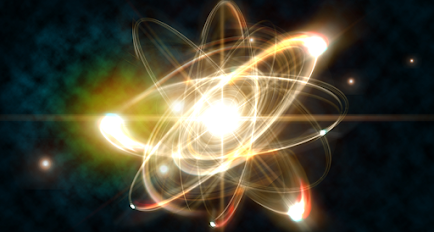A Journey into Quantum Mechanics
Quantum mechanics is the physics of very small or Quantum mechanics is a fundamental theory in physics that describes the behavior of particles at the atomic and subatomic levels. It provides a mathematical framework for understanding the properties and interactions of particles such as electrons, protons, and photons. Here are some key concepts and principles of quantum mechanics:
- Wave-Particle Duality: Particles, such as electrons and photons, exhibit both wave-like and particle-like properties. This duality is one of the central features of quantum mechanics.
- Quantization: Certain properties, such as energy, angular momentum, and other quantities, are quantized, meaning they can only take on discrete values rather than any value within a continuous range.
- Uncertainty Principle: Formulated by Werner Heisenberg, this principle states that certain pairs of physical properties, like position and momentum, cannot be simultaneously measured with arbitrary precision. The more precisely one property is measured, the less precisely the other can be known.
- Superposition: Particles can exist in multiple states or configurations simultaneously until they are observed or measured. This is famously illustrated by the thought experiment known as Schrödinger's cat, where a cat in a sealed box is simultaneously alive and dead until observed.
- Entanglement: Particles can become entangled, meaning their properties become correlated in such a way that the state of one particle instantaneously influences the state of another, regardless of the distance between them. This phenomenon puzzled Einstein, who referred to it as "spooky action at a distance."
- Wave Function: The wave function is a mathematical description of the quantum state of a system. It contains all the information about the system's properties and evolves over time according to the Schrödinger equation.
- Probability and Measurement: In quantum mechanics, the outcome of a measurement is probabilistic rather than deterministic. The wave function provides the probabilities of different outcomes, but the exact result of any single measurement cannot be predicted with certainty.
Quantum mechanics has been extraordinarily successful in explaining a wide range of phenomena, from the behavior of atoms and molecules to the properties of solids, and has led to the development of various technologies, including semiconductors, lasers, and quantum computing. Despite its success, quantum mechanics also presents philosophical questions about the nature of reality and observation.


Comments
Post a Comment